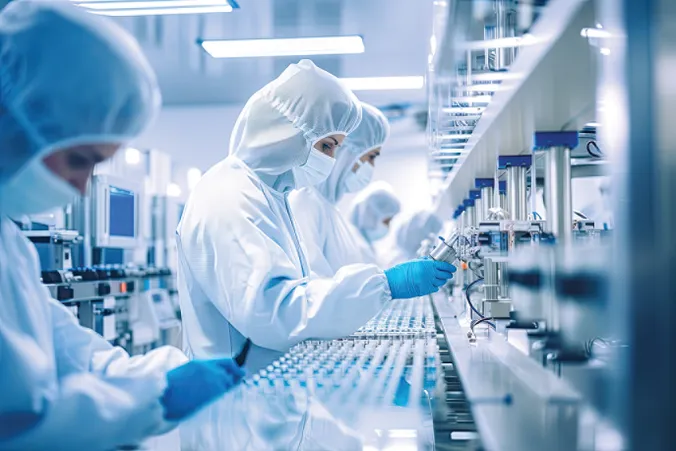Biomanufacturing is emerging as one of the most captivating technologies today, largely because it represents a paradox: it is driving incredible, unprecedented technological advancements while being powered by nature-based tools such as enzymes, fermentation, and microorganisms – some of the oldest, most elemental processes known to mankind.
These tools, deeply rooted in nature, are now at the forefront of technological progress, connecting human to their origins in a profound way. Biotech manufacturing utilizes these processes instead of energy-intensive and traditional synthetic methods to produce products like rubber, plastic, and nylon.
In the subsequent sections, we will delve deeper into the biomanufacturing process, an innovative way to address difficult problems. From mitigating climate change to reducing reliance on petroleum products or producing a new biotherapeutics generation, biomanufacturing is at the forefront of innovation!
A Quick Intro to Biomanufacturing
Biomanufacturing is the production sector of the biotechnology field. It involves creating goods utilizing living organisms like animal cells, microorganisms, or plant cells. These organisms can be modified or naturally found genetically to generate particular substances. Instances of biomanufactured biomolecules include nucleic acids or proteins for enzymes for the food sector, medications, or biodegradable bioplastics made by bacteria as they grow.
Advantages of Biomanufacturing
1. Lowers Energy Usage
The prime intention of biomanufacturing is to replace naturally occurring processes that typically only require a controlled environment and sunlight to initiate energy-intensive processes.
For instance, continuous biomanufacturing, which occurs continuously after an initial catalyzation, decreases energy consumption with minimal monitoring. The reduced costs and energy usage are advantageous for the environment, as well as for consumers and manufacturers.
2. Testament of Innovation
From the electronics in pockets to medical breakthroughs that may have far-reaching implications for public health worldwide, the developments witnessed signify exciting new frontiers by getting help from a biomanufacturing company.
When combined with minimal energy use for testing and researching, the potential of this technology helps upgrade top minds to the ideal platform to innovate across various industries and applications.
3. Eco-Friendliness
Beyond just lowering energy usage, biotechnology enables the creation of products and materials that are safer and simpler to recycle and dispose of. The long-term viability of biomanufacturing offers potential solutions to the challenges associated with waste disposal and toxic substances.
Conclusion
The field of biomanufacturing stands out as an up-and-coming sector in today’s manufacturing landscape, offering a wide range of benefits and applications. Establishing a process for the secretion of these proteins in their functional state could significantly reduce the costs of bioproduction, ultimately rendering biotherapeutics more accessible and commercially sustainable.






















Add Comment